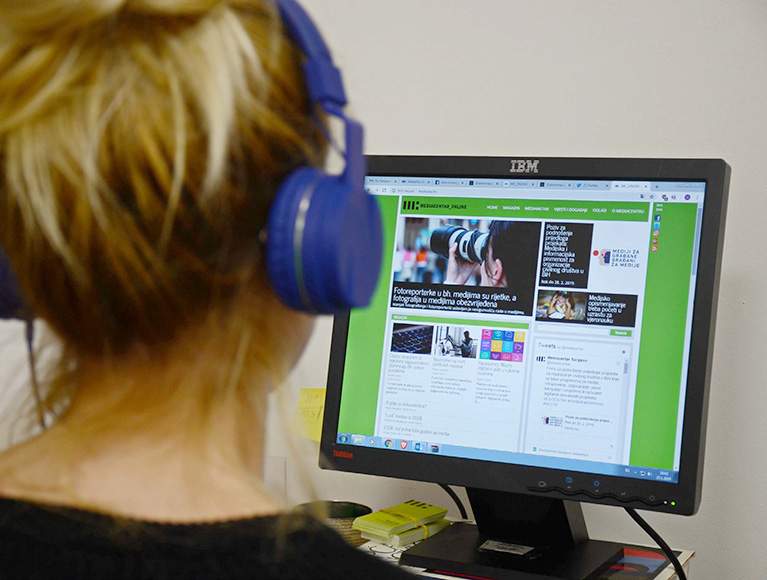Tips for media professionals: Looking after your mental well-being during the pandemic

The pandemic is affecting people directly and indirectly as millions of people get sick and as doctors, first responders, social workers, and others work tirelessly to help those in need. Fear and anxiety are natural reactions to the daily news stories about the disease, the often-uncoordinated responses, and the fact that there is no end in sight for the pandemic. Journalists are especially vulnerable to information overflow during the pandemic. Being online constantly and reading and writing about the disease and human suffering for months can result in serious health problems.
Media professionals need to know how to recognize and deal with stress and anxiety. According to the American Psychological Association, “[Chronic] stress affects all systems of the body including muscles, respiratory, cardiovascular, endocrine, gastrointestinal, nervous, and reproductive systems.” And it is not just the information overflow that it is feeding stress—disinformation, a flood of conspiracy theories, and conflicting messages all create anxiety. Combine this with isolation at home and worrying about one’s own health and the health of family members and you get a recipe for chronic stress.
Below are some tips for professional reporters, citizen journalists, journalism students, and everyone else who works with information across the globe to recognize the warning signs and look after your mental health.
Some warning signs of stress in media professionals:
- Concentration issues, including procrastination and a constant desire to go online to check social networks.
- Waking up at night and difficulty with falling asleep.
- Worsening of chronic health problems.
- New or worsening mental health conditions.
- Increased use of alcoholic beverages.
- Constant desire to seek distraction by watching more news.
If this sounds familiar, it is not too late to take action. Here are some tips:
- Listen to yourself. You might experience any number of warning signs, including ones that are not listed here. If you feel that something is not right, take it seriously.
- Give yourself a break from news and information about COVID-19. Turn off notifications on your phone at night and on weekends if possible. Find ways of talking with colleagues and friends about news that doesn’t relate to the pandemic. Give yourself a weekend to relax without your phone waking you up at night.
- Understand your social networks. Most news and visual items you see on platforms like Facebook and YouTube are recommended to you based on algorithms. If you are watching videos on COVID-19 for work, the next time you go to YouTube to relax you will get many recommendations from the site with similar video content. The same is true for other social networks. This means that even when you decide to give yourself a break, online environments will continue offering you content about COVID-19. Ignore it or watch TV. Do not let a platform’s algorithms ruin your downtime.
- Stay in touch with your support network. Friends, relatives, and close family members can help. If you are at home alone, make some time to talk to a friend or family member daily.
- If you start noticing suicidal thoughts, immediately talk with a health professional. Do it now!
- Create a daily routine, especially if you are isolated at home. Practice tai chi, yoga, or mediation. Explore mindfulness techniques.
- Accept that it may be some time until you will be back in the office. Get comfortable at home. Get a nice chair and try to recreate your office environment at home, if you can. You might also ask to go to the office to pick up your plants or second monitor.
- Eat well. This tip is one of the most important ones. While at home, you may choose to eat junk food instead of spending time cooking. Try to avoid junk food if possible. Cooking can not only distract you from news and help you relax but also help your mind stay healthy.
- Exercise daily. Find some time to run, do push-ups, dance, or perform another physical activity, if possible. Take a free online exercise class.
Media professionals do not always understand that they may be exposed to vicarious trauma as much as first responders are exposed to it. Even if you are not working with victims of COVID-19 directly on a daily basis, your mental well-being can still be affected. The tips above can help you deal with stress and anxiety. Stay well!